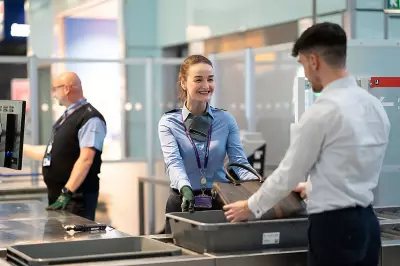
The Labour Party's flagship policy to significantly raise the National Living Wage is facing a fierce backlash from business leaders and economists, who are branding it a costly 'inflation tax' on employers.
Plans spearheaded by Deputy Leader Angela Rayner would see the minimum wage for adults increased to well over £10 per hour, a move critics argue will place an unsustainable burden on businesses already reeling from the cost-of-living crisis.
The Real Cost of a Wage Hike
Industry experts are warning that the well-intentioned policy will have severe unintended consequences. The increased wage bill, particularly for small and medium-sized enterprises (SMEs) in the retail and hospitality sectors, is unsustainable without corresponding rises in productivity.
This financial pressure will force businesses to make difficult choices: absorb the costs and risk going under, reduce staff hours, or pass the expense directly onto the consumer through higher prices. This latter option would pour more fuel on the UK's persistent inflation problem, creating a vicious cycle of rising costs.
A 'Stealth Raid' on Business
Think tanks have condemned the plan as a "stealth tax raid on employers," arguing that it represents a significant government intervention that masks its true cost. Unlike a direct tax, the expense is borne immediately by companies, threatening profitability and investment at a time when economic growth is fragile.
The policy is seen as a direct challenge to the Low Pay Commission's independent, evidence-based approach to setting wage rates, potentially politicising the process and ignoring crucial economic warnings.
Who Bears the Brunt?
While the policy aims to support low-income workers, the analysis suggests the very people it intends to help could be harmed. Sectors employing large numbers of minimum wage staff, such as:
- Hospitality: Pubs, restaurants, and cafes operating on thin margins.
- Retail: Shops and high street chains.
- Social Care: An already critically underfunded sector.
are expected to be hit the hardest. There are genuine fears of job losses, reduced hiring, and even business closures, particularly in economically disadvantaged regions outside of London and the Southeast.
A Political Gamble
For Sir Keir Starmer and the Labour leadership, the policy is a key pillar of their "New Deal for Working People." However, it pits their pro-worker rhetoric against the harsh realities of running a business in a stagnant economy. The party is walking a tightrope, trying to appeal to its traditional base while proving it can be trusted with the nation's finances.
As the next general election looms, this policy is set to become a major battleground, with business groups urging a more cautious, phased approach to avoid triggering another inflationary spiral and jeopardising the UK's economic recovery.





